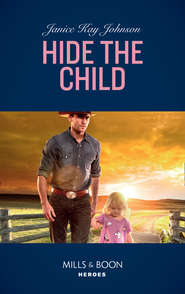По всем вопросам обращайтесь на: info@litportal.ru
(©) 2003-2024.
✖
Maternal Instinct
Автор
Год написания книги
2018
Настройки чтения
Размер шрифта
Высота строк
Поля
“We’re grunts in there. You and I aren’t even cogs in the machine. We’re oil that makes the cogs turn a little smoother. We aren’t doing anything. Not anything useful. I want back on the street. I like action. If I’d chosen to spend my life with a tape measure in my hand, I’d be a carpenter.”
Why had she, for even a second, thought him capable of sensitivity to suffering or nobility of purpose? He was a five-year-old boy, who wanted to be outside bashing his toy trucks into each other.
As tired as she was, she wanted to throw up her hands and get in the car. Stubbornness made her argue. “But this is important. It’s the biggest crime that’s ever been committed in Port Dare. That ever, God willing, will be. Don’t you want in on that?”
“The slug is dead. There’s nothing to solve.” He shrugged and got in behind the wheel.
She climbed in and buckled her seat belt. “Is it? Are we so sure this Jack Gann was the shooter?”
“We’ve got so damn many witnesses, we don’t know what to do with them.”
“They were scared.”
Rocketing out of the parking space too fast, he said, “Captain says half a dozen pointed their fingers.”
“When showed a dead man who looked like the assailant.” Why was she arguing? There wasn’t any good reason to think this Gann wasn’t the shooter. She just believed in being sure. “Did you notice how little there was to distinguish him from half the men pouring out of an office building like this at five o’clock? I saw his face yesterday. I can hardly remember it now.”
“We were all shell-shocked by then.”
“So were those witnesses,” she reminded him. “Worse.”
He was quiet for several blocks. When she stole glances at his profile, it was to see his deep frown relaxing. “Yeah, I’ve thought about all that,” Hugh admitted. “Fingerprints will settle it for us.”
“I guess they will. Once Ballistics figures out which guns killed which victims.”
He grunted agreement. “I don’t envy them, but at least they’re doing something meaningful. I still say you and I are grunts. We’d do more good preventing the next crime.”
They pulled into the dark concrete garage beneath the station. Tires squealed somewhere on the floor above them.
“Where’s your car?” Hugh asked. “I’ll drop you off.”
She was reminded uncomfortably of the last time he had done this, but chose not to make an issue of it. “Back corner.”
He braked behind the Subaru wagon. “See you in the morning.”
Another yawn cracked her jaw. “Night.”
“You didn’t want to work with me, did you?”
The unexpected question startled her. Halfway out, she twisted around to see his face in the light from the overhead lamp. Nell considered and discarded several answers, but was too tired to prevaricate. “No,” she said. “We haven’t exactly hit it off.” Except in the back seat of his Explorer. “I can’t have been your first choice, either.”
“No. I don’t like to analyze everything.”
“Whereas I don’t want to be the kind of cop who blindly follows orders and doesn’t understand that he or she sometimes has moral decisions to make.”
He grunted. “Like letting an old lady drive away even if she is going to kill somebody sooner or later?”
“No.” Her patience was ebbing. “But how can we serve if we don’t try to understand the people we’re serving? How do you negotiate a way out of a domestic call gone bad if you don’t have a good idea what’s going through the guy’s head, or the wife’s? What’s she going to do? Why’d he go off the deep end right now? What’s riding him? You won’t make detective if you’re unwilling to explore human nature.”
“Detectives sit behind their desks,” he said carelessly. “I’ve turned down promotions.”
Disgusted, she said, “Yeah, I forget. You have connections.”
His eyes narrowed and his voice went silky quiet. “My brothers have nothing to do with my career. They know better than to interfere.”
“Then what? You want to ride patrol for the next forty years? Walk into holdups at convenience stores for your big excitement?”
Something she hadn’t expected to hear from him, of all people, was real passion. But there it was, a vibrant thread in his voice, despite the lateness of the hour and his hoarse tiredness. “What we do is real police work. We’re the ones first on the scene, the ones who come when people call. I care about what I do. I don’t see it as an unpleasant duty on the way to better things.”
Stung by the scathing tone of the last, she said quietly, “I don’t either.”
“No?”
“I’m curious,” she admitted. “I haven’t been involved in a murder investigation before. So I’m a grunt. I can see how the detectives work.”
Suddenly he shook his head. “I don’t know why I started this. Go home.” He looked ten years older than he had nine hours ago.
Nell hesitated, then got out of the squad car. “Good night,” she said stiffly, and slammed the door.
The car didn’t move, and she realized he was waiting chivalrously until she was safely in her Subaru and had started it. Pulling out her keys, she thought maybe he was gentleman enough to keep his mouth shut.
Her drive home wasn’t half a mile. Five years ago, she’d managed to save enough to put a down payment on a 1920s era two-story house in Old Town. The lot had consisted of weeds and a rotted picket fence; the house hadn’t been updated since the fifties. She’d paid for new wiring and plumbing and converted the top floor into a separate apartment, rented out to cover the mortgage. Friends had helped, but most of the labor of stripping woodwork, sanding and painting had been hers. She was proud of her little house. Single mothers didn’t have it easy.
Especially ones who gave birth at sixteen and had no support from the baby’s father. The day they released her from the hospital and handed a swaddled Kim to her, she’d gone home to her mother’s, but she’d known she couldn’t stay. She had never in her life, before or since, been so scared. Sometimes life wasn’t a bed of roses, but every single time she pulled into her driveway she felt a surge of pride that she’d come this far.
Owning a house was a symbol to her of the life she’d built from nothing.
The front porch light was on, as was the light over the stove in the kitchen. On the stovetop lay another note written in her daughter’s still childish hand: “If you’re hungry, Mrs. Cooper sent home a bowl of spaghetti. I told her you don’t take meal breaks when you’re into work. Also, I got bored tonight and made some banana bread. See, I even cleaned up! Love you, Kim.”
More tears threatened. Nell grabbed a paper towel and blew her nose firmly. She was an emotional mess today. Not that it hurt to appreciate what a good kid Kim was. Despite all of Nell’s worries, she knew her daughter was unselfish, kindhearted and mostly sensible.
After throwing away the paper towel, Nell took the plastic bowl of leftover spaghetti out of the fridge and stuck it in the microwave. She was starved. She just hadn’t realized it. Hugh hadn’t suggested a meal break and it hadn’t occurred to her that she needed one. At some point her stomach had settled its differences with the beer, thank goodness.
She sliced banana bread, buttered it and poured a glass of milk while she waited for the microwave to beep.
What a day, she thought, carrying the heated spaghetti to the table a moment later.
She tried not to think about the night before. It had been stupid, but she was human. Lesson: no more than one drink. Ever.
Better yet, don’t drink at all.
While she ate, her mind flitted from the crime scene and the shooter with the hole in his temple to the half a dozen minor arguments with McLean that had filled any empty nook in their shift. Why him? she asked herself in disbelief. Why not somebody, anybody, else? She hadn’t liked him by reputation, and she’d liked him even less after they’d worked together a couple of times.
Nell wanted to conclude that she didn’t like him any better now, but believed in strict honesty. He’d been…decent today. No leers, no innuendoes, no murmurs and grins with his buddies. He’d let her see a few moments of vulnerability, he’d been considerate in driving her to her car that morning, and he’d been efficient and fair-minded on the job even though he had apparently been chafing at their roles.
Maybe she’d survive their partnership. Maybe she could even forget what had happened in the back seat of his Explorer. Thank God there was no reason Kim would ever even guess that her mother had done something so impulsive, so rash, so wanton!
A little flicker of anxiety sparked in her chest. Kim wouldn’t ever have to know unless…











